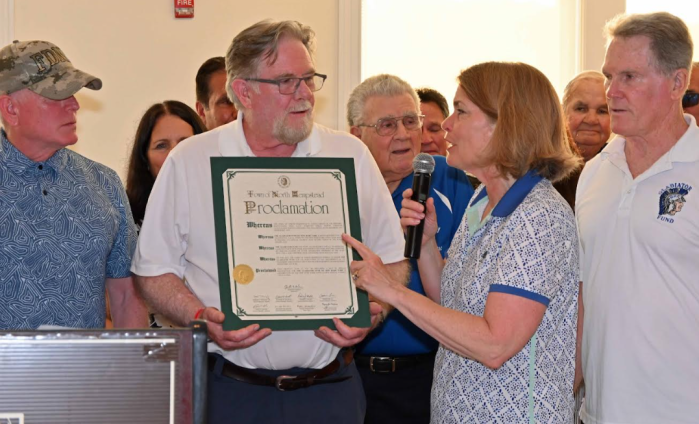A federal judge dismissed the claims of a former bank examiner at the Federal Reserve Bank of New York who says she was fired for refusing to change her finding that Goldman Sachs lacked a firm-wide conflict-of-interest policy.
U.S. District Judge Ronnie Abrams in New York ruled late Wednesday that the assertion by Carmen Segarra that supervisors retaliated against her failed to fall within the whistleblower statute under which she filed her case.
The law, enacted in 1989 after the savings and loan crisis to protect bank examiners from outside interference, covers an individual who “discloses protected information to a third party, not when she is asked to alter that information,” the judge ruled.
ProPublica reported Segarra’s assertions about Goldman last year. In October, she filed a wrongful termination complaint naming the New York Fed and three of its officials.
The judge dismissed the claims against the three officials, saying the law could only be used to file lawsuits against institutions and not individuals. Known as the “depository institution employee protection remedy,” it safeguards examiners who “provide information” about “any possible violation of any law or regulation.”
In her ruling, Abrams also concluded that the Fed guidance Segarra cited—that Goldman Sachs have a firm-wide conflicts-of-interest policy—was only advisory and not a law or regulation. As such, it was not covered under the statute, the judge decided.
The New York Fed hired Segarra in 2011 as part of an effort by the bank to ramp up its supervision of nine so-called “Too-Big-to-Fail” financial institutions, including Goldman. Segarra, a lawyer, was hired along with other examiners for her expertise in compliance and risk management.
The new examiners were assigned to review the banks to see if they complied with a Supervision and Regulation Letter issued in 2008, known as SR 08-08. In 2009, a review by an outside Federal Reserve team had found problems with New York’s efforts to ensure that the banks it supervised followed the policy, which covers a variety of topics from money laundering to conflicts of interest.
In her complaint, Segarra argued that numerous laws and regulations underpinned the guidance. She also claimed that her superiors violated the law by obstructing her examination.
A spokeswoman for the New York Fed declined to comment on the ruling. In a statement last October, the bank said its personnel decisions “are based exclusively on individual job performance and are subject to thorough review. We categorically reject any suggestions to the contrary.”
Goldman Sachs declined to comment.
Abrams’ ruling also recounts how, earlier this month, the judge disclosed to the parties in the case that her husband, Greg Andres, a partner at the law firm Davis Polk & Wardwell in New York, was representing Goldman Sachs in an advisory capacity.
During a telephone conference, Abrams asked lawyers for the Fed and Segarra if they wanted to her to recuse herself or consult with their clients. The revelation came the day before oral arguments on a motion by the New York Fed to dismiss the case.
During the call, both sides declined to request a recusal. After the arguments, however, Segarra’s lawyer sent out a list of questions asking about the relationship of Andres with Goldman Sachs.
In her ruling, Abrams said the questions came too late and gave the appearance that Segarra was shopping for another judge. “Such an attempt to engage in judicial game-playing strikes at the core of our legal system,” the judge wrote.
Abrams had also previously worked at a law firm with the Fed’s lead counsel in the case, but the judge said that the two “didn’t work together closely.”
“We are disappointed by Judge Abrams’ ruling, particularly in light of her clear conflict of interest,” Segarra said in a prepared statement. “We remain confident in the validity of our claims and will not stop until we have justice.”
Segarra said that she plans to appeal.


































